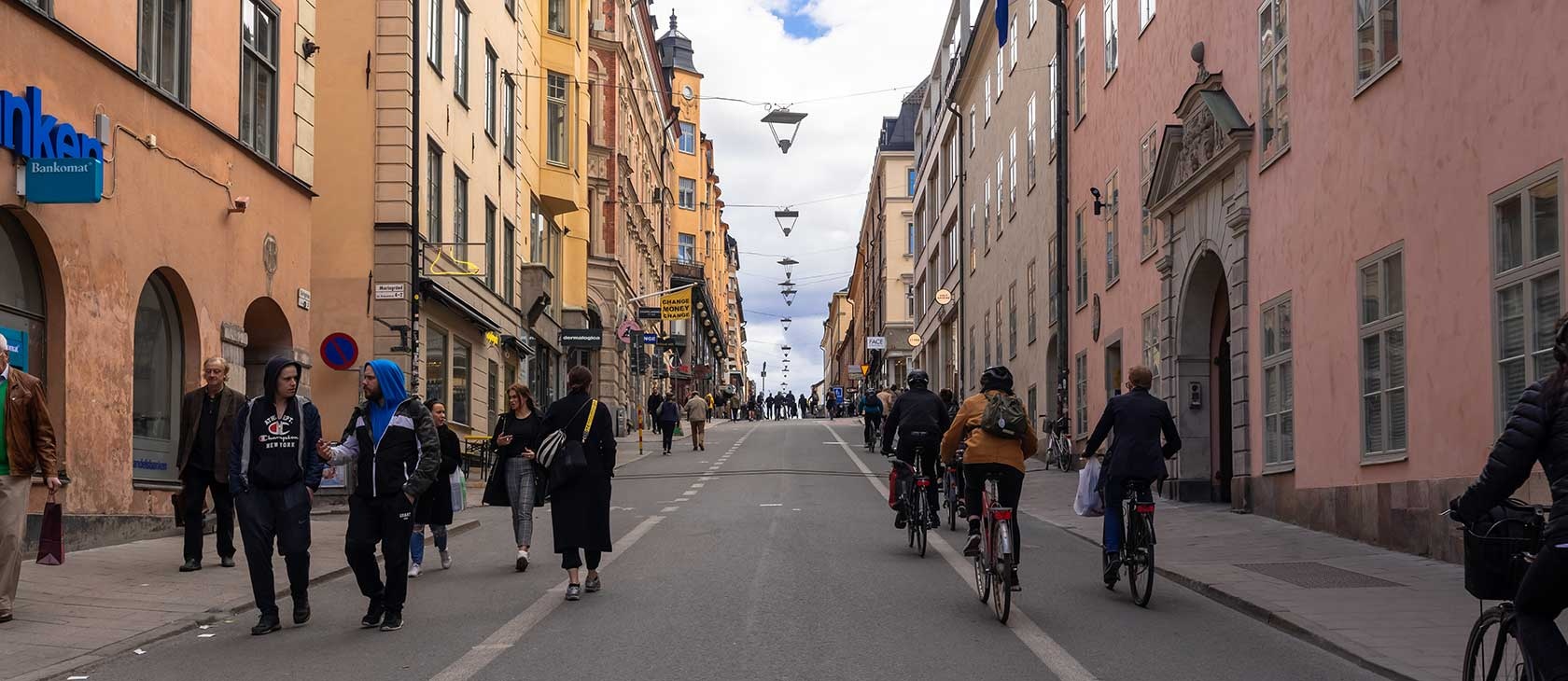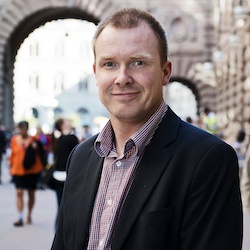Thanks to its unique response to the coronavirus, Sweden is once again being discussed as an international oddity. Sweden seemingly relishes its status as a global anomaly: It is the world’s most secular-individualistic nation but has a strong apparatus of state control. For most of its history, it has been ruled by the Social Democratic Party. Today, Sweden is praised or disparaged, because it is one of few nations in the Western world that has not enforced a national lockdown in response to the COVID-19 pandemic.
To be sure, Swedish universities, high schools, and churches responded by meeting online. But kindergartens and compulsory schools have carried on as usual. As of this writing, only five restaurants in the nation have been shut down by the authorities for being too crowded. (Two of them were allowed to reopen again within less than 48 hours.) In general, the Swedish Social Democrat-led government has more or less followed the motto: “Stay at home or stay apart. But if you don’t follow this rule, we won’t punish you.”
It is too early to state conclusively whether Sweden’s relaxed attitude towards the pandemic has been successful. Some nations with stricter lockdowns have higher death tolls, while others have a lower number of deaths by infection. It must be noted, however, that at this time statistical comparisons between Sweden and other coronavirus-stricken nations or regions show that Sweden has a distinctly smaller increase in the number of deaths. Therefore, it is not evident that this state-sanctioned openness has had worse effects than the strict lockdowns enjoined elsewhere.
How did this laissez-faire model emerge in one of the West’s most pronounced social assistance states? The peculiar Swedish model of a strong welfare state combined with broad and robust individual autonomy may at first glance appear contradictory. But actually, the Swedish coronavirus strategy constitutes a practical example of what could be called Swedish “state individualism.”
Several causes lie behind this particular model of national organization, but it is largely the product of political decisions. Sweden is characterized by the uniquely long hegemony of a single political party. The Social Democrats ruled the nation from 1932 to 1976 and for many years since then. During their tenure, the power of the church, family, and civil society was gradually weakened. Civil society and apolitical connections steadily eroded. All rivals that could compete with the political order’s claim on the citizen fell by the wayside.
The Social Democratic vision of government connected an isolated individual to a strong, collectivist state. After Sweden’s unique archetype, which accords the highest place to the isolated individual, permeated so many branches of society for so many decades, it became difficult to change perspective even during a crisis. The Social Democratic/Green coalition government’s path of permitting greater personal choice when it comes to social distancing and virus-reducing behaviour grows out of this history.
Swedish state individualism does, however, accord strong powers to governmental decrees. This is why Anders Tegnell, a state epidemiologist at the Public Health Agency, has seemingly replaced Prime Minister Stefan Löfven as leader of the nation during this outbreak. When Tegnell speaks, both government officials and private citizens obey. This may sound contradictory, but it follows the state-individualistic principle. The Swedish people are ready to follow almost any rule proclaimed from above—as long as it maintains the independence of the detached individual as a basic virtue.
The future of this relationship between the individual and the state will largely rest on the social consequences it produces as a result of this health crisis. Sweden could join in the backlash against postwar individualism which has swept parts of the region, complete with the rise of authoritarian leaders. However, such a development remains remote in Sweden. Here, the critical attitude against different forms of authority has permeated Swedish society for so long, and coercive measures are considered so foreign, that they will not be embraced even to stop the spread of the coronavirus.
Still, Swedes’ frustration over the practical consequences of their nation’s secular-individualistic dynamic has grown in recent years. It remains unclear whether the coronavirus outbreak will provide new impetus for “state individualism” or whether it will strengthen these concerns, awakening a thirst for another way of life. There are signs that people are beginning to resist Sweden’s peculiar, purely autonomous pattern and seek new ways to forge relationships within their communities during this time of isolation. They long to end their loneliness by building up Burke’s “little platoons,” although they would never use that phrase.
In the long run, the COVID-19 crisis will be the pivotal factor in evaluating Sweden’s ingrained perspective of the isolated individual dominated by a paternalistic, secular government. Will the global pandemic create new criticisms of the ideological and practical materialism pervading Western culture? Will the populace find state-dominated, autonomous individualism less appealing? Will the need to cooperate within families and civil society open up space for the spiritual values embedded within a community-based way of life distinct from the state? These relationships could allow subsidiarity to replace the anachronism of Europe’s most atomized, government-dominated society.




